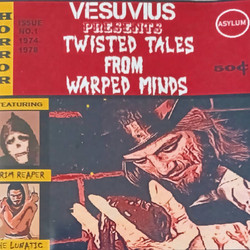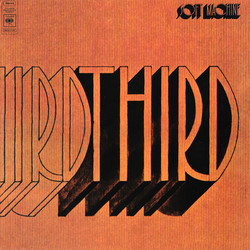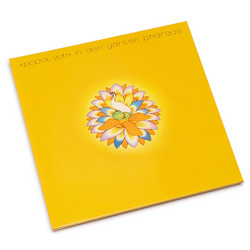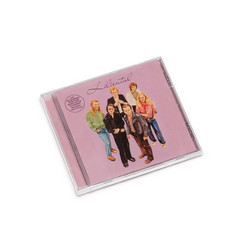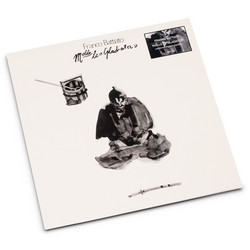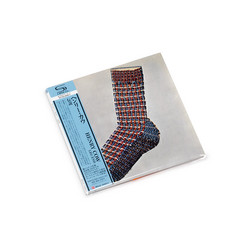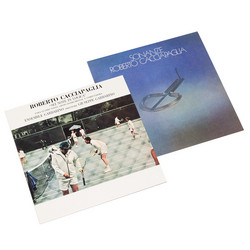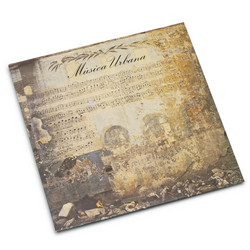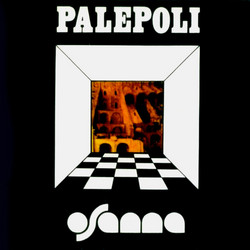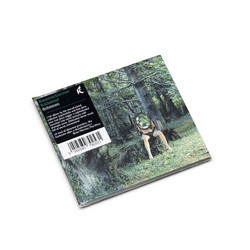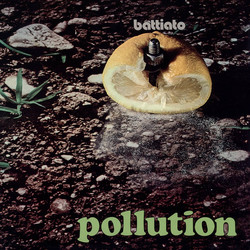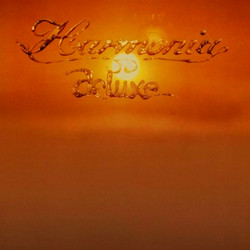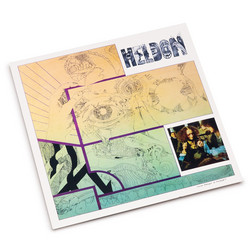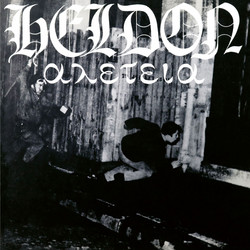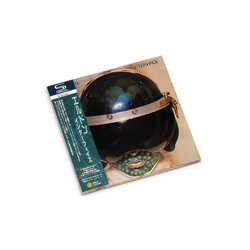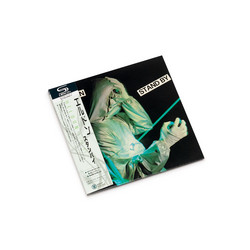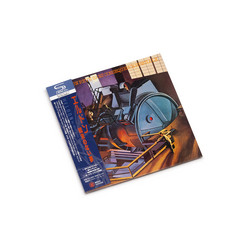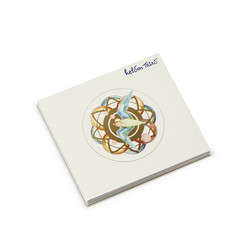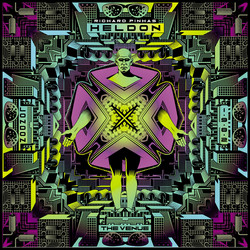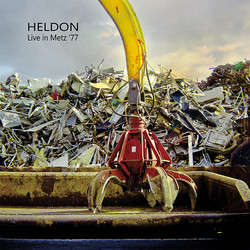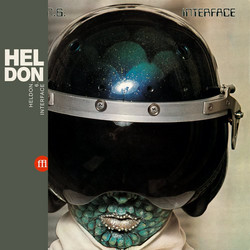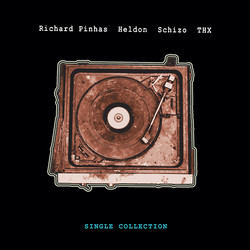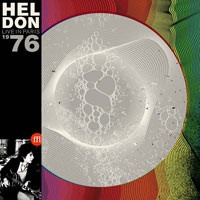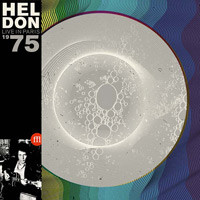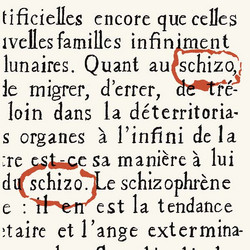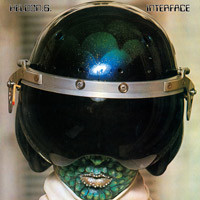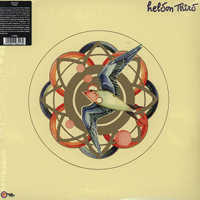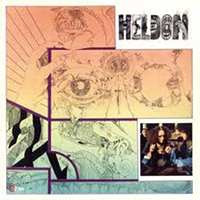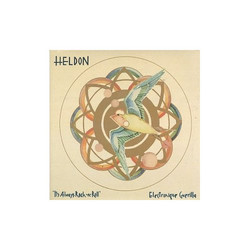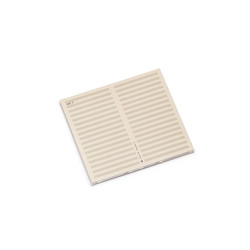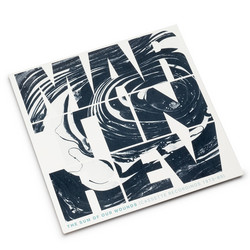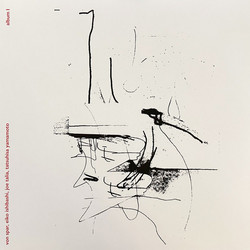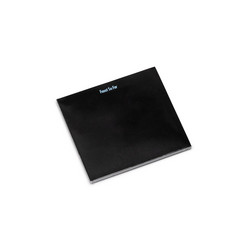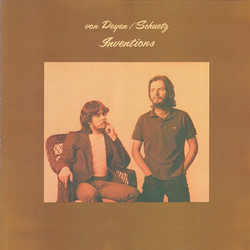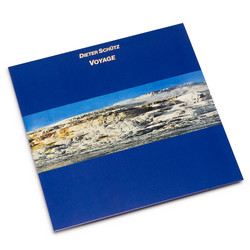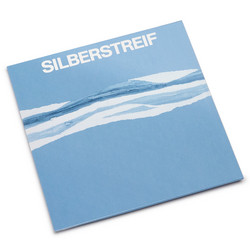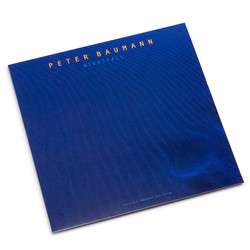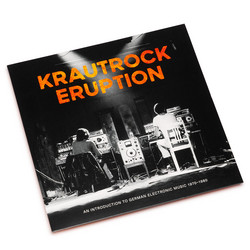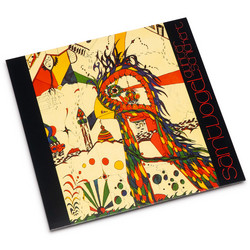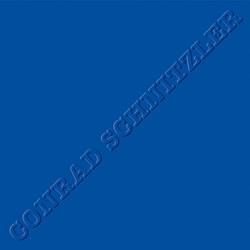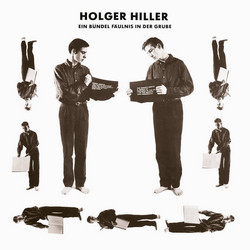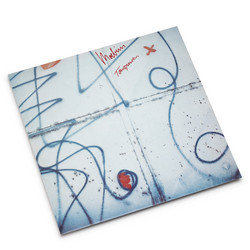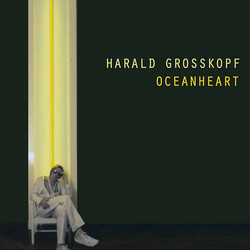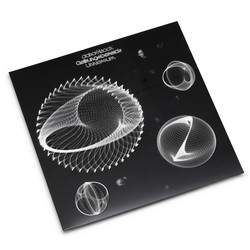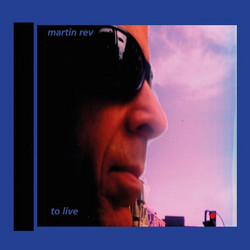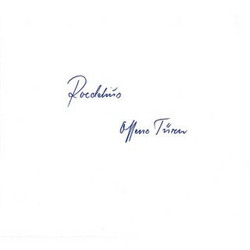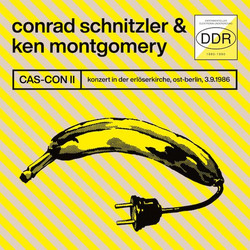** Limited Anniversary Edition: hand numbered, limited edition light Blue double vinyl, 500 copies available! hird album from the French spacerock electro combo masterminded by Richard Pinhas. Heldon’s darkest work lays another stone in their sonic mosaic: synths,drones, fuzz and trippy improvisations. Intense Heldon!! **
In the sprawling landscape of 1970s experimental music, few figures carved as singular a path as Richard Pinhas and his electronic storm trooper project Heldon. While their contemporaries in the French avant-garde were exploring the outer reaches of free improvisation and musique concrète, Pinhas was forging something entirely different - a brutal, beautiful collision between the cosmic expanses of Ash Ra Tempel and the mechanized intensity of industrial futurism. It's Always Rock 'n' Roll, originally issued in 1975, stands as perhaps the most essential document of this remarkable vision. This is electronic music as physical force - not the pristine digital landscapes that would later dominate the genre, but something raw, visceral, and utterly alive. Pinhas approaches the synthesizer not as a tool for ambient drift, but as a weapon of sonic destruction and reconstruction. The album's three extended pieces unfold like tectonic shifts, each movement building inexorably toward moments of transcendence that feel genuinely earned through the journey's intensity.
The opening "Marie Virginie C." immediately establishes the album's aesthetic coordinates - pulsing sequences that seem to breathe with mechanical life, layered beneath Pinhas's howling guitar work that recalls both Tony Conrad's sustained tones and the more earthbound fury of krautrock's finest. But where Conrad sought mathematical purity, Pinhas embraces controlled chaos, allowing his electronics to surge and recede like waves against a concrete shore. What makes It's Always Rock 'n' Roll so compelling four decades later is its refusal to choose between cerebral experimentation and gut-level impact. This is music that operates simultaneously on multiple levels - as a meditation on the relationship between human expression and mechanical precision, as a document of the post-'68 French underground's radical optimism, and simply as a overwhelming sonic experience that can level unprepared listeners.
The album's centerpiece, "Aurore," demonstrates Pinhas's mastery of extended form. Over its 18-minute duration, the piece evolves with the patience of the greatest minimalist works while maintaining a constant undercurrent of barely controlled energy. Sequences lock into hypnotic patterns, then gradually shift and mutate, creating the sense of witnessing some vast machine slowly awakening to consciousness. Pinhas's guitar work throughout deserves special mention - this isn't the noodling that often plagued early electronic music's attempts at "organic" elements, but playing that feels essential to the music's DNA. His lines snake through the electronic textures with the inevitability of natural law, creating a synthesis that few of his contemporaries achieved.
The production, handled by Pinhas himself, captures every detail of the music's complex architecture while retaining the sense of space and dynamics that separates great electronic music from mere sound. Even in the album's most intense passages, individual elements remain distinct, creating a sense of depth that rewards close listening. It's Always Rock 'n' Roll belongs in the same conversation as Kraftwerk's Autobahn, Neu!'s self-titled debut, and Cluster's Zuckerzeit - essential documents of electronic music's revolutionary first decade. But where those albums often emphasized the utopian possibilities of human-machine collaboration, Heldon's vision feels more conflicted, more aware of technology's potential for both liberation and alienation.
This reissue, lovingly restored and presented with the respect this music has always deserved, offers the perfect opportunity to reassess one of experimental music's most overlooked masterpieces. In an era when electronic music has largely been domesticated into either dance floor functionality or ambient wallpaper, Heldon's radical vision feels more necessary than ever. It's Always Rock 'n' Roll stands as proof that the most important experimental music isn't made in laboratories or conservatories, but in the spaces where vision meets viscera, where intellectual rigor crashes headlong into pure sensation. Essential listening for anyone seeking to understand how electronic music learned to roar.

